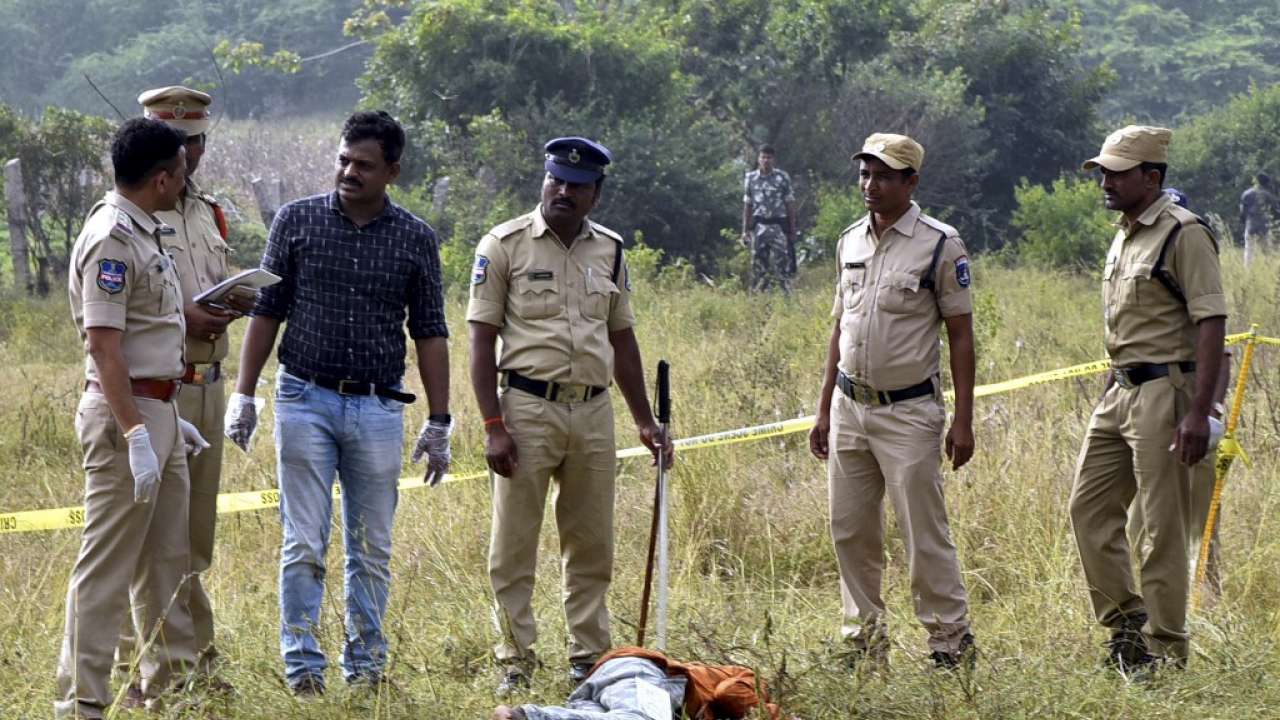
VALIDITY OF HYDERABAD ENCOUNTER OF THE RAPE ACCUSED
Brutal rape and murder of a veterinary doctor, near Hyderabad, left the nation outraged with protest going on asking for justice, stricter laws against the rapists and speedy trials in such cases. The day after she was murdered, the four suspects were arrested based on CCTV footage and the victim’s mobile phone. The accused were taken for judicial custody for 14 days, and the Chief Minister of Telangana, Hyderabad ordered for a fast track court. The gruesome act of the perpetrators of rape and murder has triggered the whole nation , demanding immediate justice by giving them capital punishment. During the period of judicial custody, all the four accused were killed in police encounters. According to the Hyderabad Police, the accused were brought at the spot of crime for the reconstruction of the crime as part of the investigation, but the accused tried to escape by attacking the police, and in retaliation all the four were shot dead along with two constables who were injured.
However, the Human Right Organisation, including Amnesty International ordered a proper investigation on the matter in order to determine if this act was extrajudicial killing. Extra Judicial Killings are not a solution to prevent rape says the director of Amnesty International India.
The encounter in Hyderabad questioned the validity of the extrajudicial killings that are nowadays devised and resorted by a large section of the Indian Police. Such encounters have been in practice by the Maharashtra Police to deal with the underworld people, Punjab Police against the Sikhs who were demanding Khalistan, and also by the Uttar Pradesh Police. There was the same incident of killing the accused in an acid attack case which happened in Telangana town 11 years ago. Where the police shot them showing it as an encounter. The fact about these encounters is that they are not clashes but a preplanned strategy to kill the person by the police.
Article 21 of the Constitution of India provides provisions for Protection of life and Personal Liberty states “No person shall be deprived of his life or personal liberty except in accordance with the procedure established by law”.
According to this Article before depriving a person of his life, the state needs to bring the person to trial first in accordance with the provisions of Criminal Procedure Code. In the trial, the accused has the Right of being heard or need to be given the opportunity to be heard (i.e. Audi Alteram Partem) where the accused must know about the charges that are leveled against him , and has the right to defend himself and represent himself through a lawyer. It is only when the person could be labeled as guilty or not guilty, can he be convicted and executed or not, until then the accused is considered as not guilty. As a general saying that until and unless a person is not proven guilty he shall be considered as not guilty.
Fake encounters, on the other hand, completely circumvent the legal procedure , as it means labeling a person guilty even without having a trial. Taking the accused to the crime spot, in the early hours of the day with their hands not being handcuffed, who rather than running were attacking the officials for 15 minutes, while the officers asked them to surrender but they continued to fire that led to killing of the four accused by the police officer. Hence, such encounters are unconstitutional. The officers justify their act by terming the person as a dreaded criminal against whom evidence can not be gathered as no person has the courage to get negatively involved with them, and in order to make justice survive fake encounters are the only option. The problem lies, that these encounters can even be misused if a precedent is set as killing a rival would become very easy by having a fake encounter. Calling the murder of the accused as justice is not acceptable and that too by the Indian police. Doing fake encounters in order to protect women rather than providing them safety and dignity to the rape survivors and then calling lynching the only possible justice is not accepted.
In Prakash Kadam v. Ramprasad Vishwanath Gupta[ (2011) 6 SCC 189], the Supreme Court held that fake encounters by police are nothing but cold blooded murders, and those committing them must be given the death sentence, treating it as ‘rate of rarest case’ . An incident like this where the police officials take the law in their hand, has made a mockery of the Rule of Law as well as the Constitution (the supreme law of land) and the judiciary of the country. India is a country which is bound by its legal and constitutional framework and setting such a dangerous precedent in the legal system is very dangerous as such encounters are not a solution to rape.
For more information Visit Our Site
To submit your work Contact US






